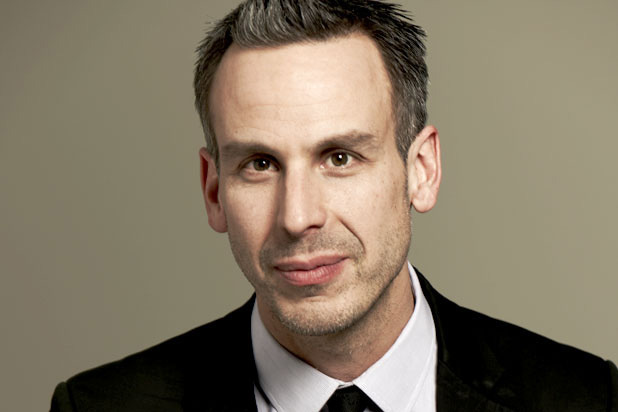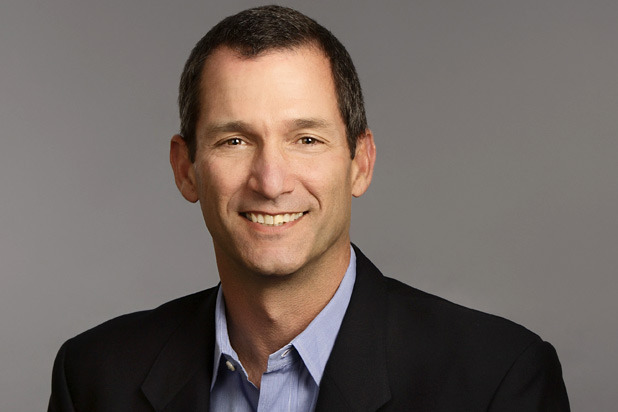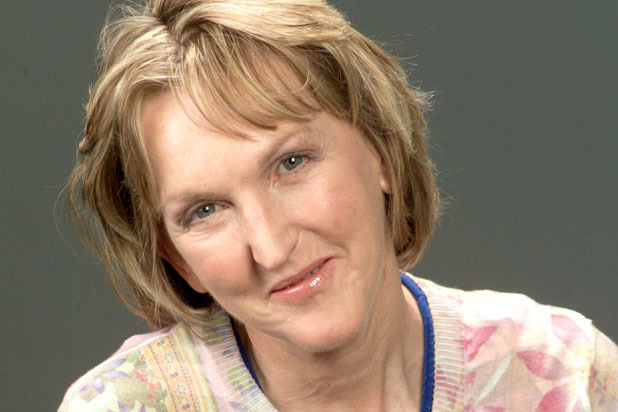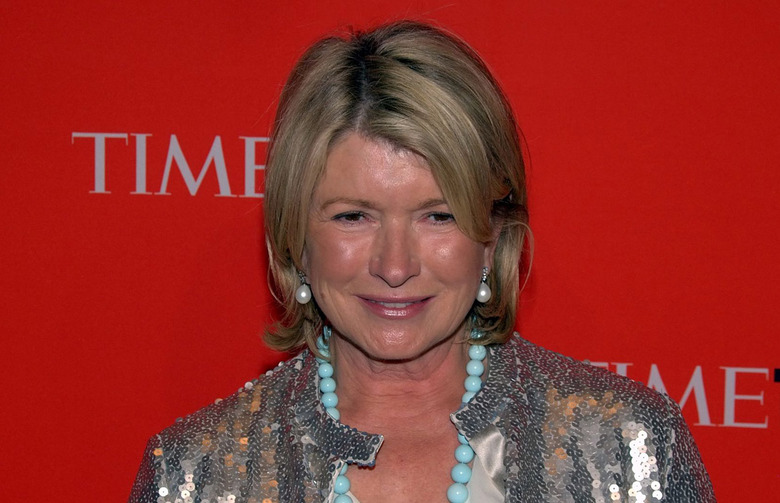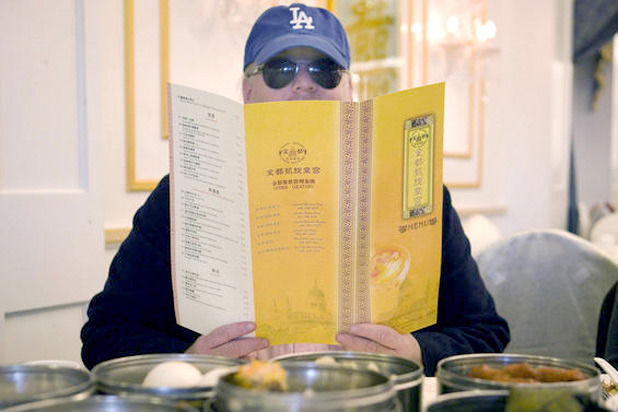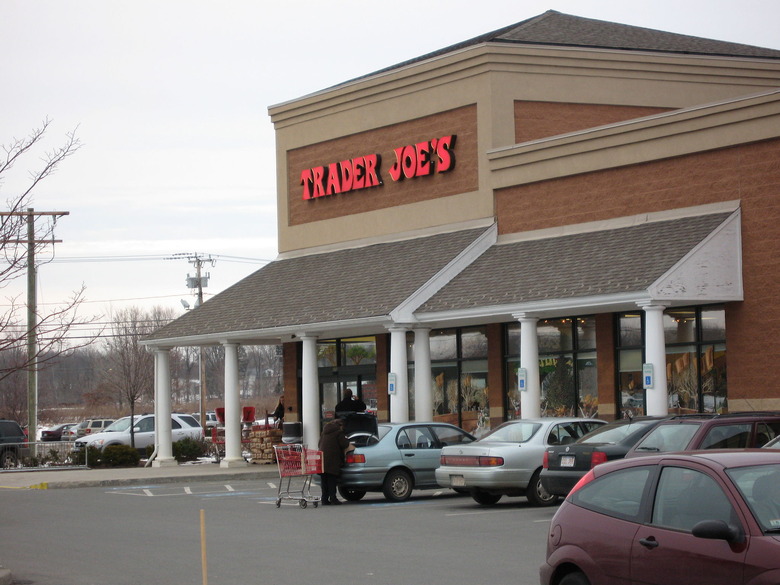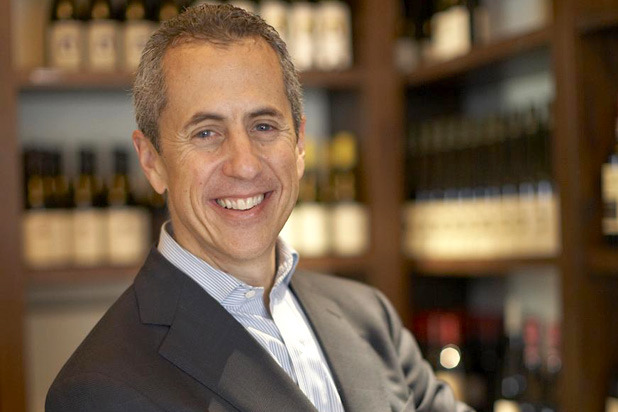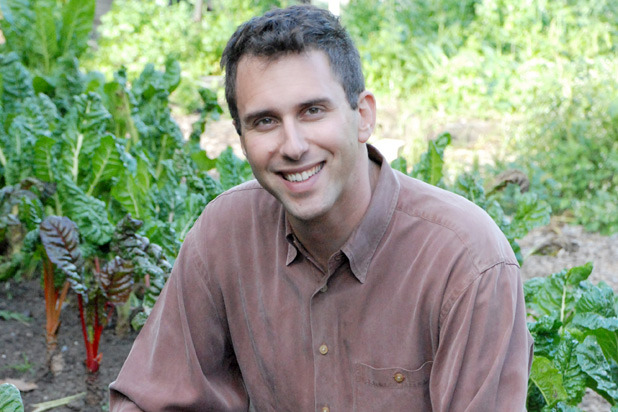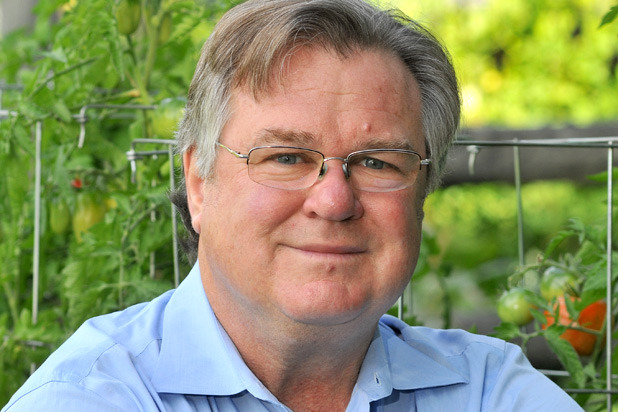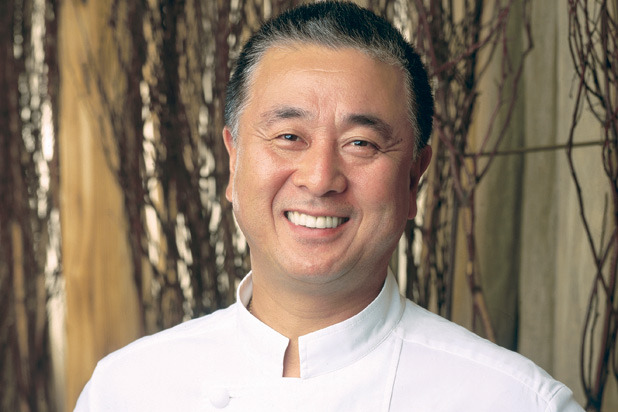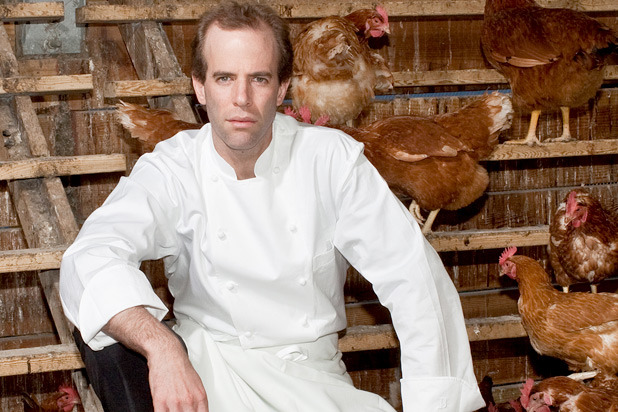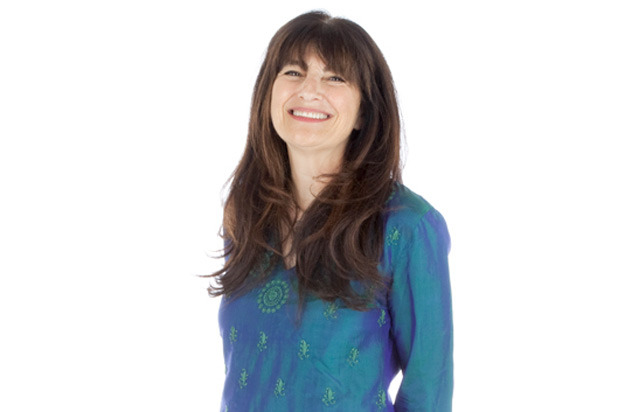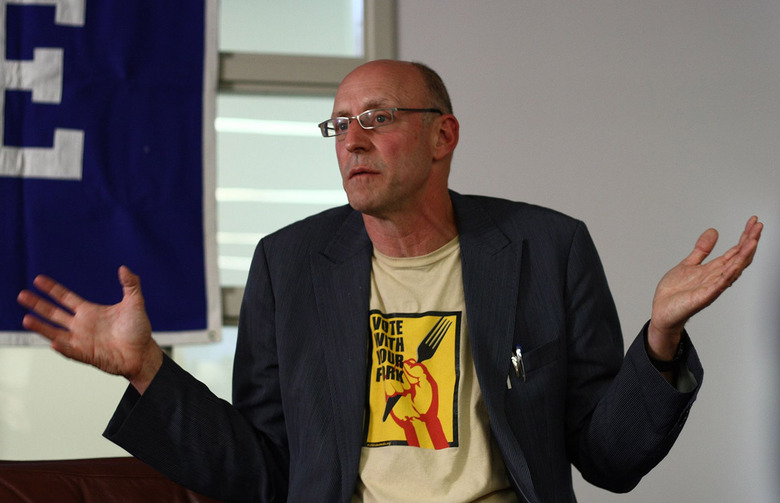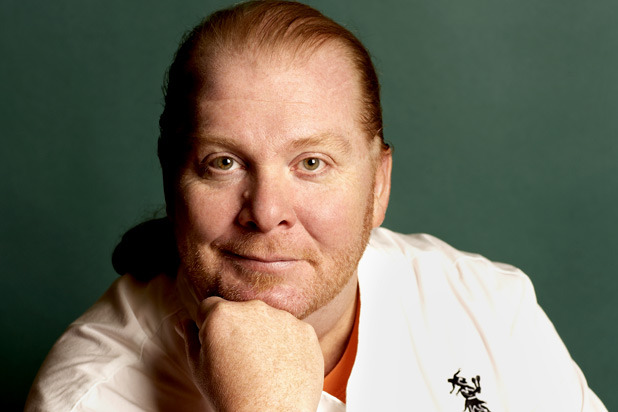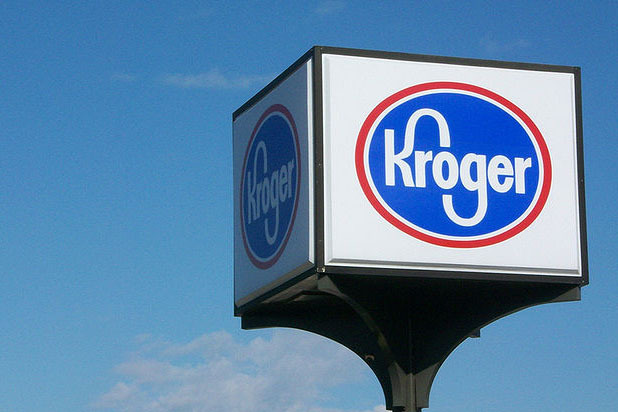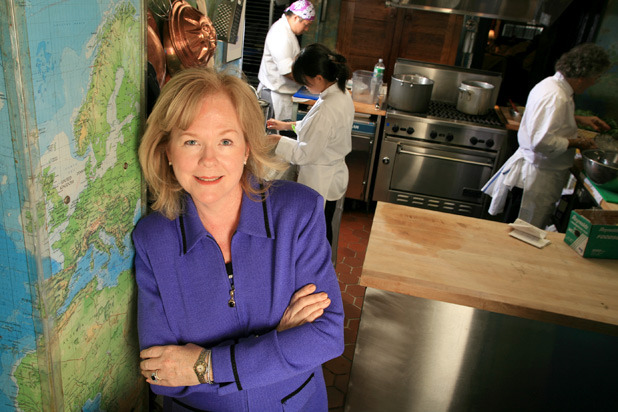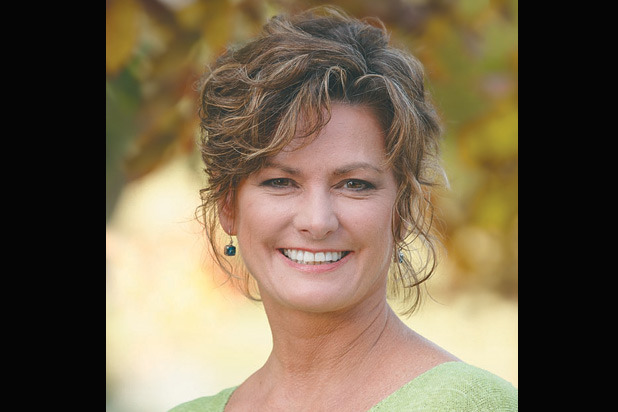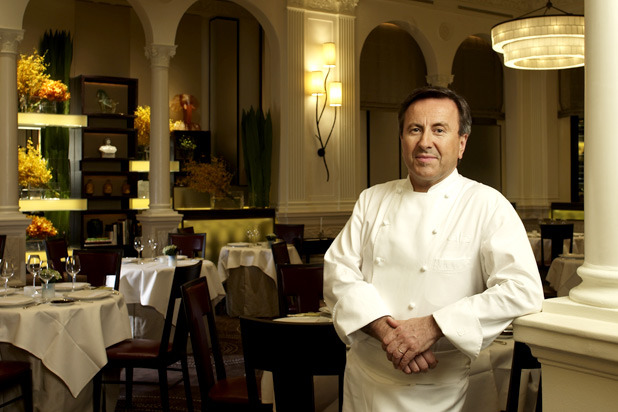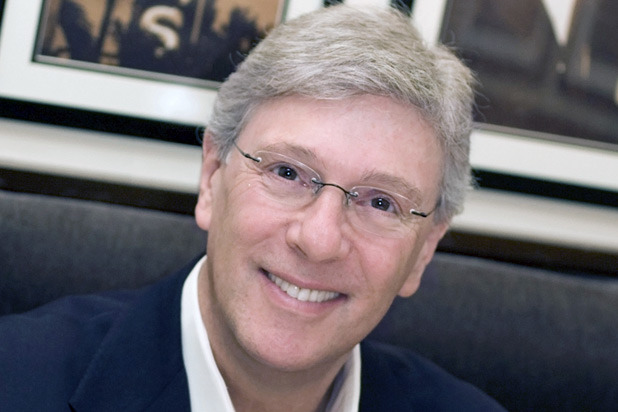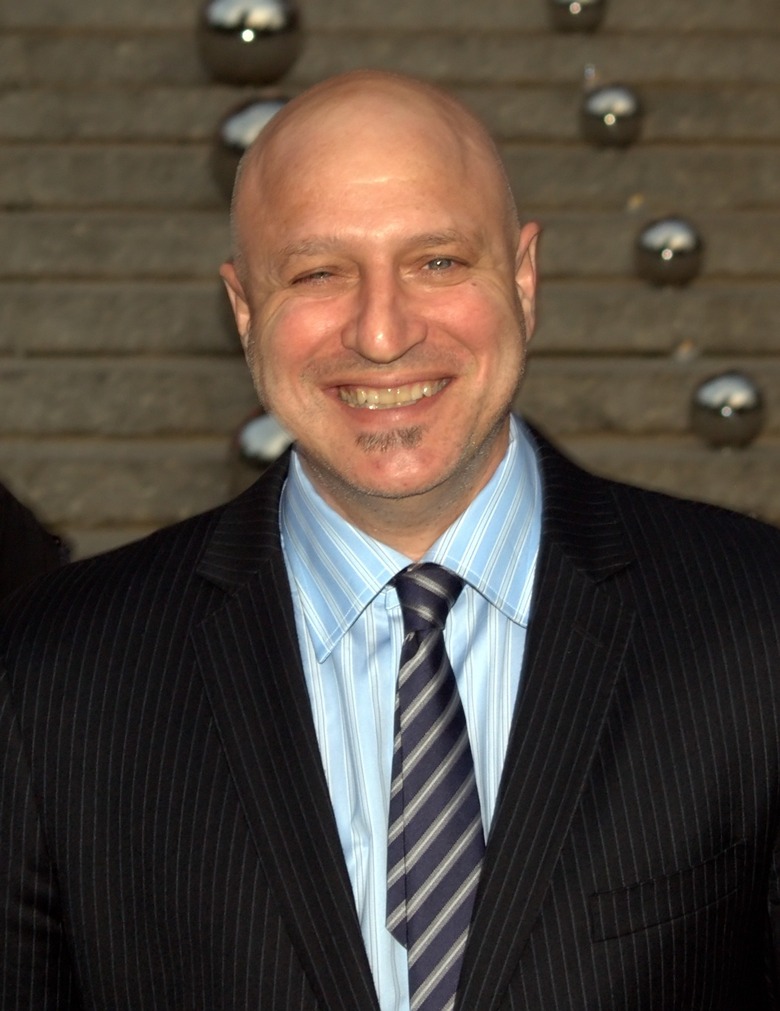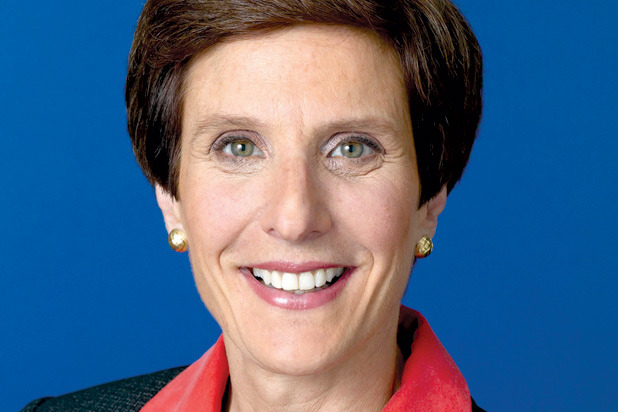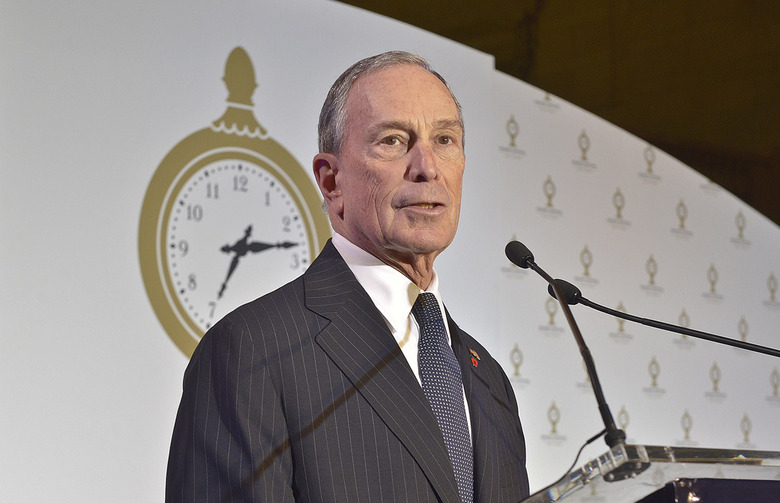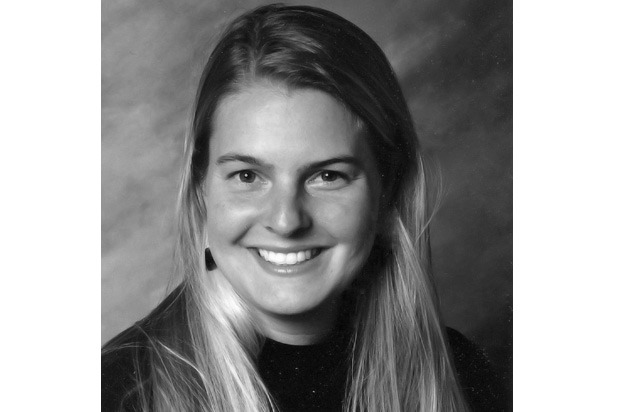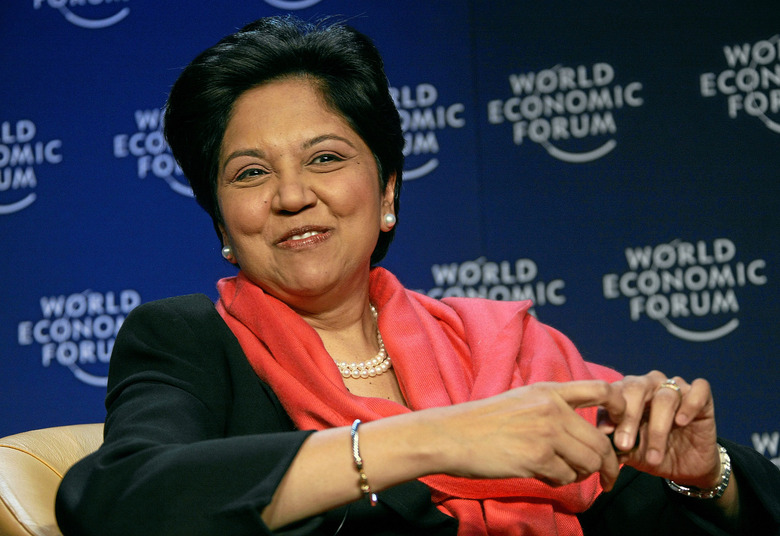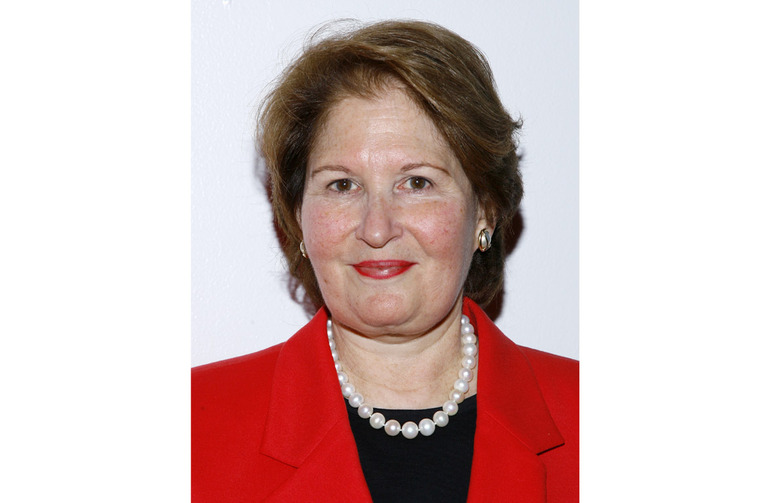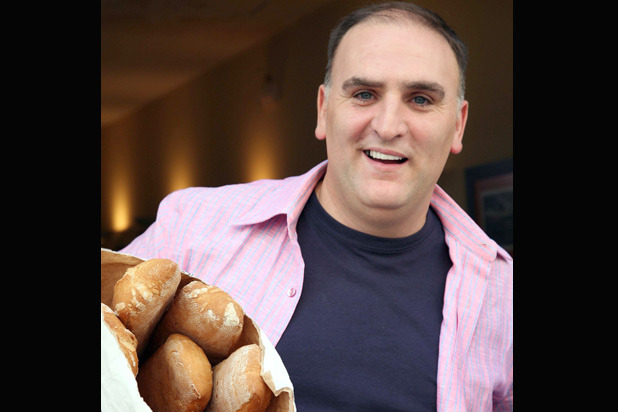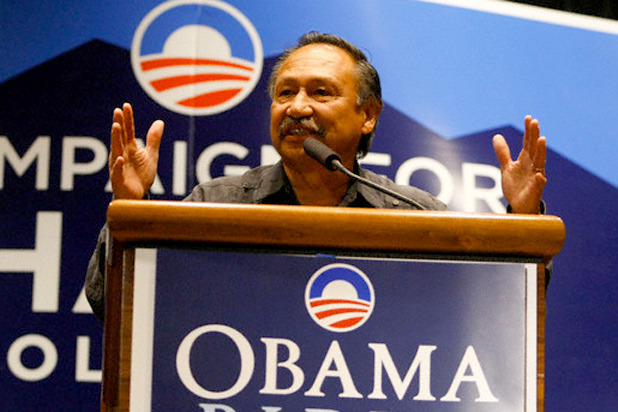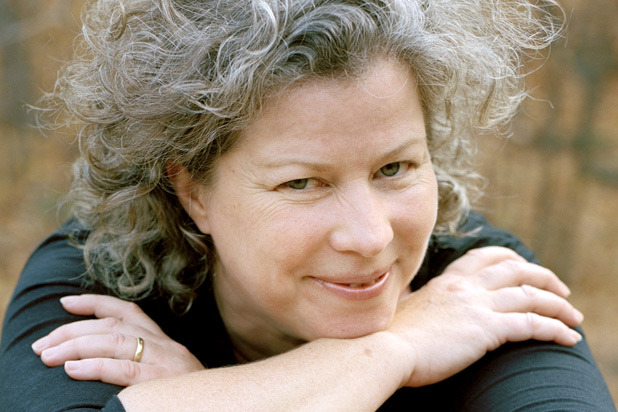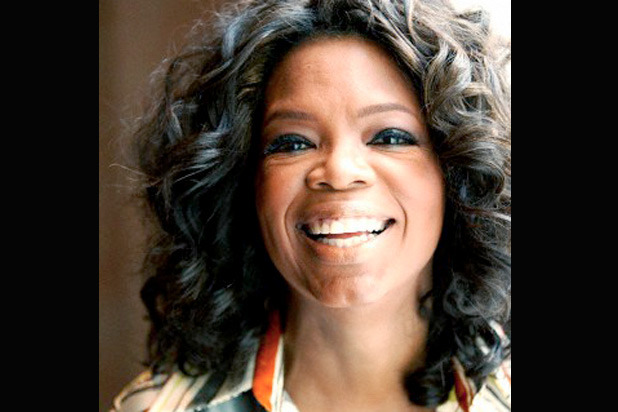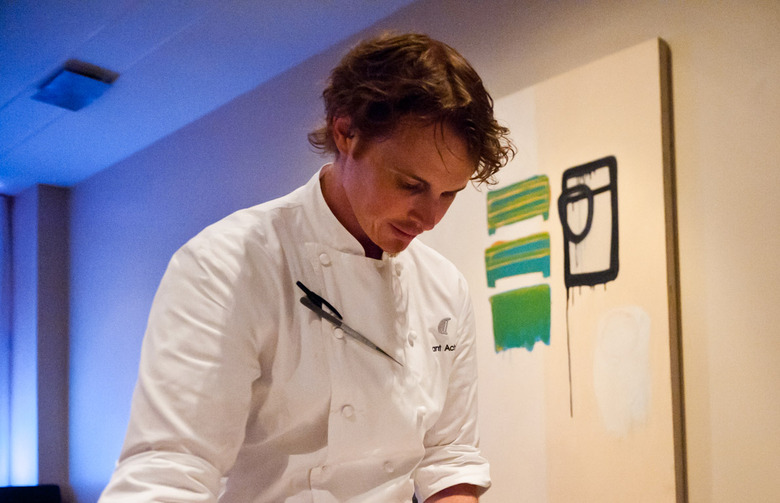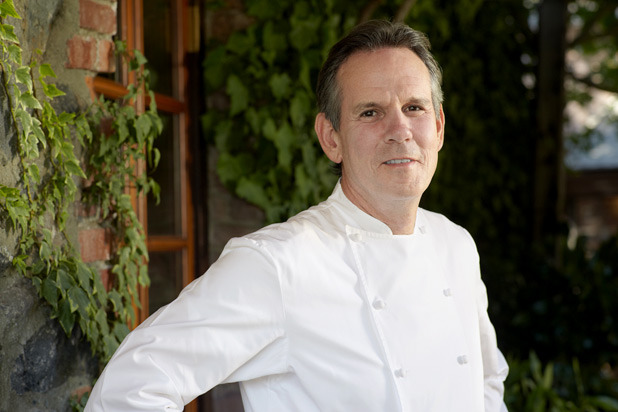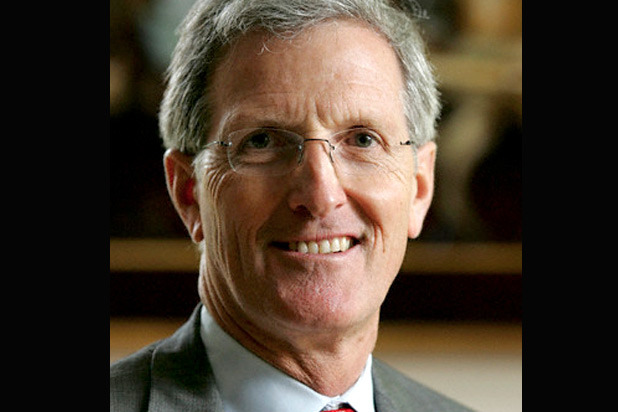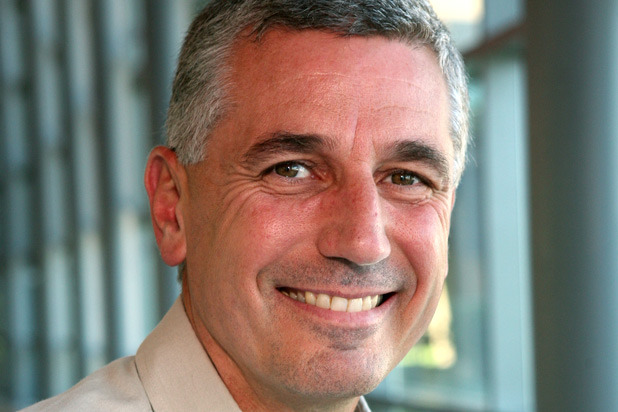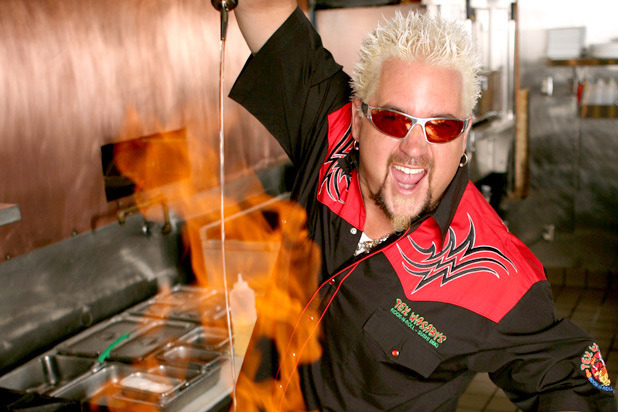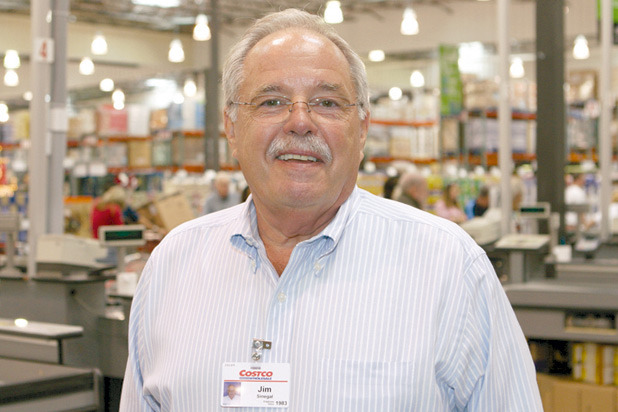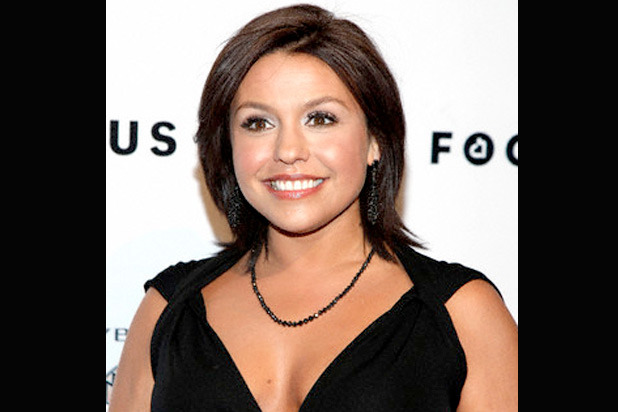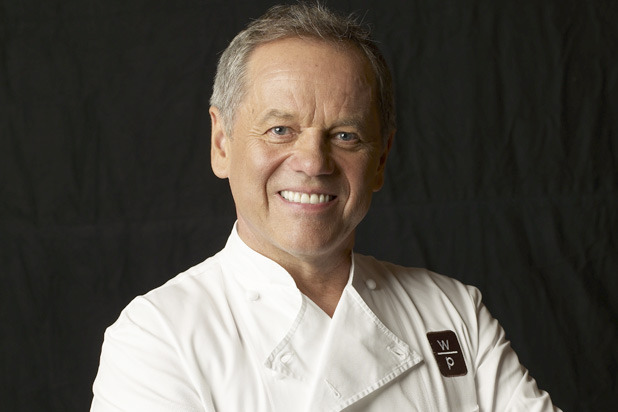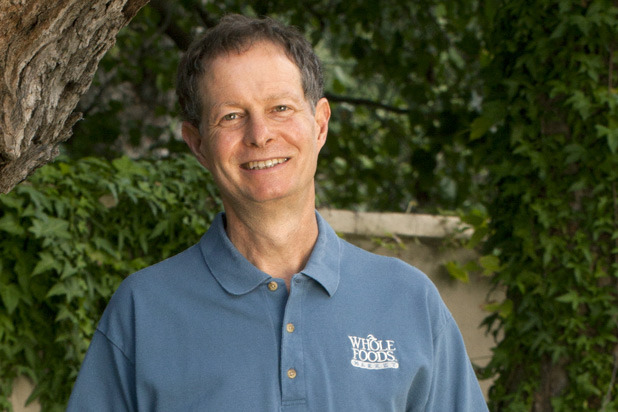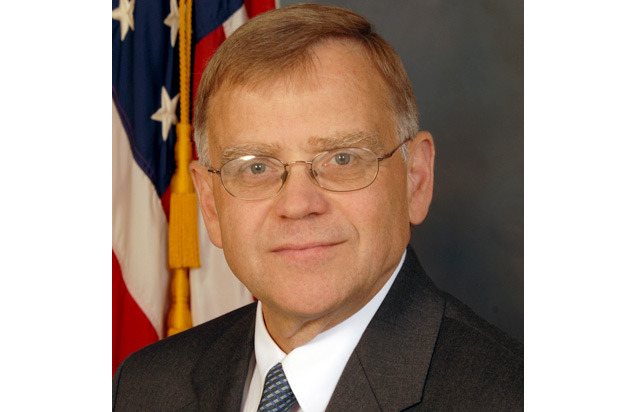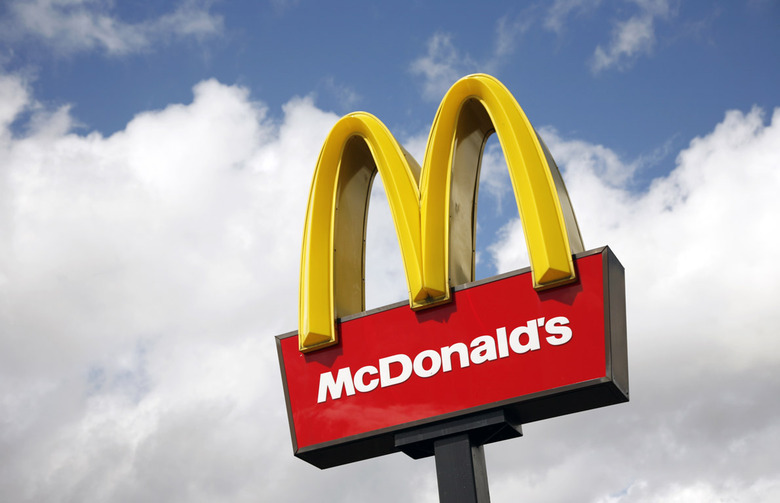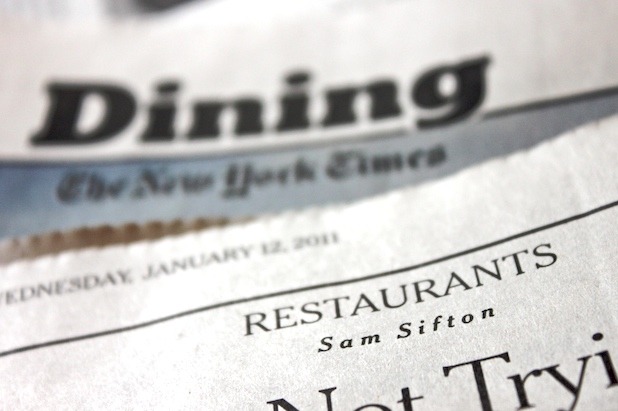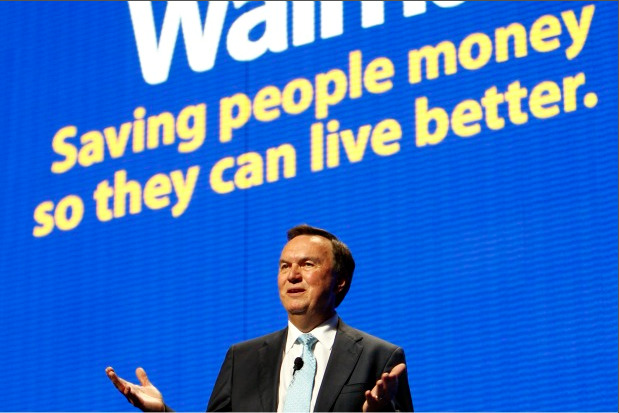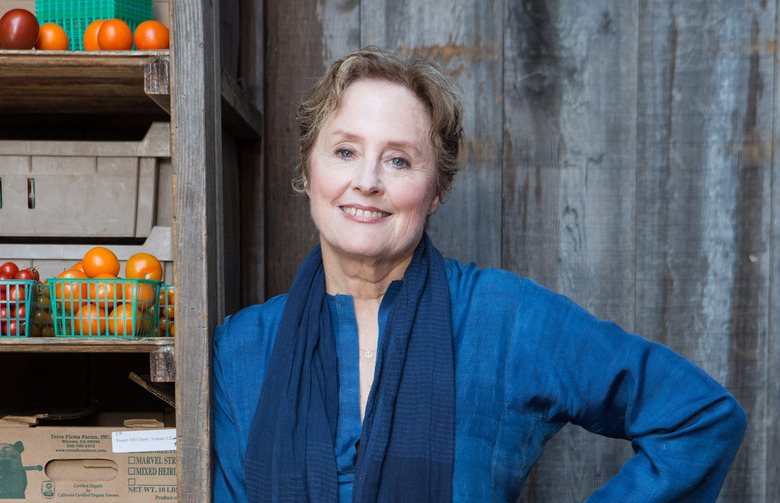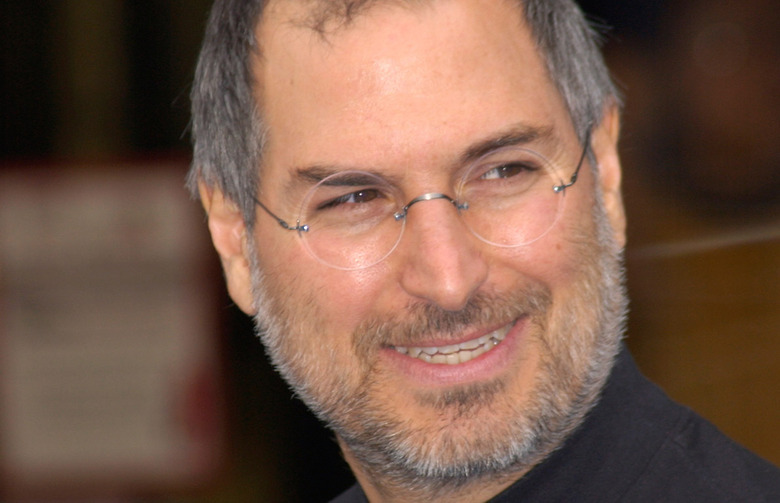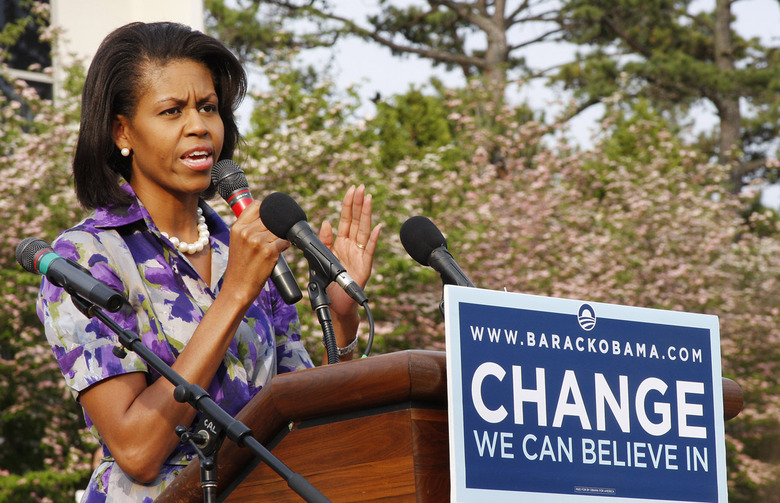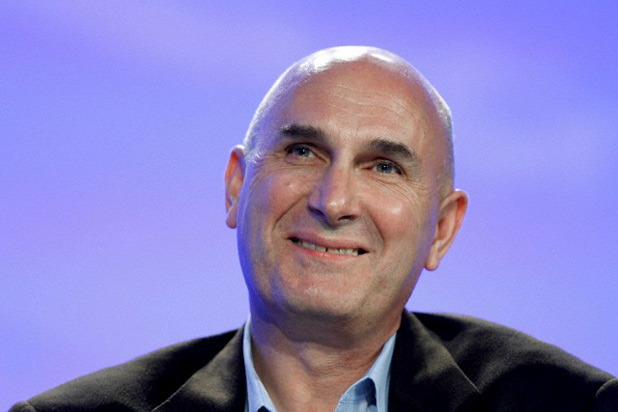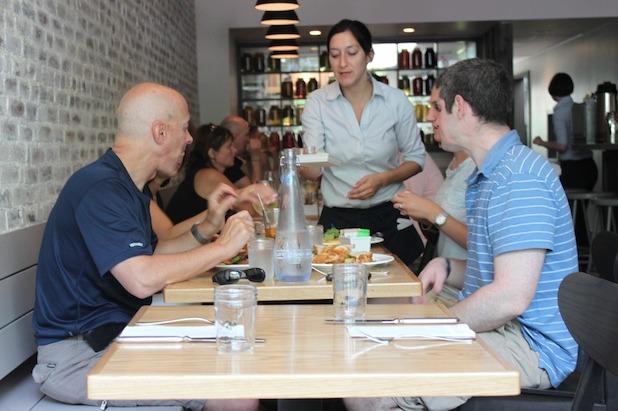America's 50 Most Powerful People In Food For 2011 Slideshow
We're confident that we've come up with a pretty good list. What do you think? Did we leave off anybody obvious, or give undue prominence to some food folk or not enough to others? Let us know your thoughts in the comments below.
#50 Adam Rapoport, Editor-in-Chief, Bon Appétit.
For the first time in recent memory, a major American food magazine — Bon Appétit in this case — is being reinvented pretty much top to bottom, and Rapoport's the man in charge. As former restaurant editor of Time Out New York and more recently style editor of GQ, Rapaport has the chops, and his new gig gives him the opportunity to raise the level of gastronomic discourse in America. The May issue will be his first, and we'll see if he uses his power wisely.
#49 Jeffrey Jordan, CEO, OpenTable
Using OpenTable, it is now possible to book tables online at more than 15,000 restaurants, all over America and in London; 175 million diners have taken advantage of the service since its inception in 1998. Some restaurateurs object to OpenTable's fees, but the site has had a real impact on the hospitality industry, not just changing the way people make restaurant reservations — no more long waits on hold, no more snooty reservationists — but also discouraging no-shows and enabling customization of the experience (want to arrive by limo? have flowers waiting at the table? invite friends?). More innovations are presumably to come.
#48 Ingrid Newkirk, President and Co-Founder, People for the Ethical Treatment of Animals
As head of this increasingly high-profile organization, known popularly as PETA, Newkirk agitates for total vegetarianism but meanwhile, acknowledging reality, espouses more humane treatment of animals raised for fast food and other culinary uses. Among some of PETA's accomplishments have been exposing animal cruelty at pig-breeding factory farms in North Carolina and Oklahoma, and lobbying successfully for McDonald's to improve treatment of farmed animals raised for its use. Burger King and Wendy's and supermarket chains Safeway, Kroger, and Albertsons later followed suit.
#47 Martha Stewart, TV Personality, Entrepreneur
Stewart, creator of a wildly successful food and entertaining brand, remains one of the most powerful women in the entertainment industry. Her first book, Entertaining, published in 1982, became the best-selling cookbook since Julia Child's Mastering the Art of French Cooking. In 1990, she launched her iconic Martha Stewart Living magazine. Twenty-two years later, her company, Martha Stewart Omnimedia, produces books, periodicals, TV shows, housewares, and more. She continues to be an arbiter of domestic fad and fashion, in and out of the kitchen.
#46 Jonathan Gold, Journalist, LA Weekly and KCRW-FM
Okay, Gold's got game — first of all solely on the grounds of having been the first (and so far only) food writer to win a Pulitzer Prize, thereby not only enhancing his own reputation but bringing new credibility to a sometimes maligned profession. Beyond that, restaurant critics everywhere read his columns in LA Weekly and probably weep, not just because they can't get all that great Thai food he often talks about but because he sets stylistic and analytical standards that most other writers can only nibble at.
#45 Dan Bane, President and CEO, Trader Joe's
From a Southern California convenience store, Trader Joe's has grown into a culinary-cultural phenomenon with offbeat semi-supermarkets in 31 states (and more to come), establishing standards of quality and purity for suppliers (they have a famous list of ingredients they won't accept in products they sell), inspiring other food retailers to be more creative, and in general — despite corporate secrecy policies that seem to have been borrowed from the NSA — injecting a dose of fun into market-going.
#44 Danny Meyer, Restaurateur
As the founder and CEO of Union Square Hospitality Group, Meyer is the powerhouse restaurateur behind Union Square Café, Gramercy Tavern, Maialino, and The New York Times four star-rated Eleven Madison Park, among other Manhattan eateries name a few. In addition to ranking among New York City's top dining destinations, Meyer's restaurants are also distinguished for their superior hospitality, a guiding principle in his business philosophy. He even penned a non-restaurant-specific manual called Setting the Table: The Transforming Power of Hospitality in Business. Then of course there's the Shake Shack effect: Not only has the immensely popular burger stand grown into its own expanding mini-empire, it has served as a model for other chefs to serve quality food in a low-end context.
#43 Josh Viertel, President, Slow Food USA
Viertel, who has been at the helm of Slow Food USA since 2008, was recently named a Young Global Leader by the World Economic Forum (he is 32) for his leadership of the American Slow Food movement. A grassroots initiative born in Italy, Slow Food aims to educate consumers, improve the way food products are produced and preserved, and celebrate the social and cultural experience of eating. Though Slow Food has only 19,000 members in America (and a mere 85,000 worldwide), it is highly visible and widely respected, and has stimulated culinary discourse nationwide.
#42 Barry Estabrook, Investigative Journalist
An article of his in Gourmet in early 2009 was responsible for dramatic improvements in labor conditions in the tomato farms of Florida — the state grows roughly half of all the tomatoes consumed in America — and Estabrook has continued to be perhaps our most eloquent and knowledgeable observer of issues relating to what he calls "the politics of the plate" (on his website of that name and elsewhere), as well as an activist dedicated to trying to make bad things better.
#41 Nobu Matsuhisa, Chef-Restaurateur
Having virtually reinvented Japanese food for non-Japanese diners (his black cod with miso became one of the signal dishes of the 1990's in restaurants all over the country), Matsuhisa today oversees, with varying degrees of personal involvement, almost 30 restaurants in locations ranging from Aspen to Athens, Dallas to Dubai (with three each in New York, London, and the Los Angeles area) — and continues to help shape restaurant idioms around the world.
#40 Dan Barber, "Farm-to-Table" Chef–Restaurateur
You could argue that if the whole farm-to-table, eat-local movement had a mascot, it would be Dan Barber. Since opening his Manhattan restaurant, Blue Hill, and then its sister establishment, Blue Hill at Stone Barns, part of a working farm in New York State's Westchester County, Barber has become a green-cuisine idol, encouraging other restaurateurs to source locally and develop close relationships with their suppliers. The James Beard Award-winning chef was even appointed to serve on the Presidential Council on Physical Fitness.
#39 Ruth Reichl, Writer and Editor
She no longer has her bully pulpits (The New York Times restaurant critic's slot or the editorship of the late Gourmet magazine), but Reichl remains a contender. She is among the most successful American authors of narrative food books and has recently become at editor-at-large for Random House (in which context she will presumably bring us good writing on food that is not her own). She has also inspired parody (cf. Ruth Bourdain and "The Tao of Ruth") — of which there is far too little in the food world — and, hey, she has more than 60,000 followers on Twitter.
#38 Michael Pollan, Writer
No conversation about modern commercial foodways and the American agricultural system would be complete without mention of best-selling author Pollan. His body of work, including the James Beard Award-winning Omnivore's Dilemma and the more recent In Defense of Food, has made him one of the more prominent critics of American agribusiness. A contributing writer to The New York Times Magazine and a professor of journalism at UC Berkeley, Pollan has been a leading voice in the national discussion about where our food comes from and why it's so important to care.
#37 Mario Batali, Chef–Restaurateur
Chef, restaurateur, cookbook author, media personality... As our most diversified and highly visible exponent of modern Italian — and/or Italian-American — cooking, Batali has built an empire of restaurants, with the help of business partners including Lidia and Joe Bastianich and Nancy Silverton, that have changed the way we think about everybody's favorite cuisine. Last year, his Del Posto in Manhattan won four stars from The New York Times, one of only seven restaurants — and the only Italian — to merit that distinction.
#36 David Dillon, Chairman and CEO, Kroger Co.
Together with its subsidiaries, Kroger is the country's largest grocery store chain, operating more than 3,000 stores from the West Coast to the Deep South. The multiple dairies, bakeries, meat plants, and other production facilities it manages feed millions of people a year, and its buying decisions affect product development and availability on a major scale.
#35 Susan Ungaro, President, James Beard Foundation
When she became president of this non-profit culinary institution in 2006, Ungaro's main job seemed to be damage control: After her predecessor was accused of embezzlement, the organization lost much of its credibility in the food world, despite the fact that it doles out what are the considered the highest honors in American food and wine, the James Beard Awards, sometimes called "the Academy Awards of food." Ungaro restored the foundation's reputation and has since worked on expanding the foundation's charitable works, like its scholarship program, as well as raising the profile of the Beard Awards — even moving the ceremony to New York City's Lincoln Center to give it added pizzazz.
#34 Lockhart Steele, Founder, Eater.com
Steele founded the real estate-focused Curbed.com, which became the cornerstone of a suite of blogs called the Curbed Network. Since 2005, when he launched Eater.com with partner Ben Leventhal, Steele has been the driving force behind the network's popular food site, offering up-to-the-minute restaurant news across the nation. With users ranging from chefs and restaurateurs who use it to scout out newly available spaces to food nerds who gobble up the industry gossip the site often peddles, eater.com regularly breaks news, reports scandals, and scoops bigger, more established media outlets.
#33 Catherine M. Cassidy, Vice-President and Editor-in-Chief, Taste of Home Media Group
Taste of Home has the largest circulation of any food magazine in the country — 3.2 million, nearly two-and-a-half times what its nearest competitors boast. In addition, its various cookbooks have sold over nine million copies, its website logs 2.3 million visitors a month, and its pop-up cooking schools attract more than 300,000 attendees annually. Sure these folks affect the way America cooks and eats.
#32 Daniel Boulud, Chef-Restaurateur
The ultimate standard-bearer for fine French food, traditional and contemporary, in America today, Boulud scoffs at trends even as he extends the definitions of what haute cuisine can be. As he continually enriches the food scene in his adopted country, Boulud helps keep France's reputation for culinary excellence alive.
#31 Rich Melman, Restaurant Mogul
A consummate trend-spotter, culinary popularizer, and developer of kitchen and dining room talent, Melman was the co-founder of, and for decades has been the animating spirit behind, the punningly named Lettuce Entertain You Enterprises, based in Chicago but currently running more than 60 restaurants in seven states, from Arizona to Virginia. Along the way, Melman has raised the bar for "dinner houses" all over the U.S., and made theme restaurants into an art form.
#30 Tom Colicchio, Chef-Restaurateur and “Top Chef” Host
A consummate trend-spotter, culinary popularizer, and developer of kitchen and dining room talent, Melman was the co-founder of, and for decades has been the animating spirit behind, the punningly named Lettuce Entertain You Enterprises, based in Chicago but currently running more than 60 restaurants in seven states, from Arizona to Virginia. Along the way, Melman has raised the bar for "dinner houses" all over the U.S., and made theme restaurants into an art form.
#29 Irene Rosenfeld, Chairman and CEO, Kraft Foods
As the Chairman and CEO of Kraft Foods, Irene Rosenfeld runs the company that produces such mainstream brands as Jell-O, Ritz Crackers, Philadelphia Cream Cheese, and Oscar Mayer hot dogs and bacon, not to mention cheese aplenty — products found in the pantries of nearly every home in America. Named #2 on Fortune's recent roster of "most powerful women" (just under Indra Nooyi), Rosenfeld most recently helped Kraft acquire Cadbury, making her company a $48-billion dollar leader in the packaged food business.
#28 Michael Bloomberg, Mayor of New York City
As the Mayor of New York City since 2002, Michael Bloomberg has been working to improve the health of New Yorkers, and in doing so, has garnered the attention of health officials in cities around the nation. He successfully orchestrated a ban on the use of trans-fats by the city's 24,000 food establishments in 2006. His subsequent targets have included sodium levels in food and the use of food stamps for the purchase of soft drinks. He is also the owner of Bloomberg Corp., which covers food and the business of food, among many other subjects, through its various media outlets.
#27 Lisa Sharples, President, Allrecipes.com
Since Sharples became head of Allrecipes.com, which sometimes ranks as the most popular recipe search site on the Web (thus far, we can't help adding), it has grown by at least 40 percent, and now boasts an average of six million unique users a month. With her new position as president of the Reader's Digest Association, which owns the site — she remains the head of Allrecipes.com, too — she'll presumably strive to ensure the continued success of the company's other food-related properties, including the Rachael Ray and Taste of Home empires.
#26 Indra Nooyi, Chairman and CEO, PepsiCo
PepsiCo claims to own the world's largest portfolio of food and beverage brands, "including 19 different product lines that each generate [sic] more than $1 billion in annual retail sales." Frito-Lay, Quaker, Pepsi-Cola, Tropicana, and Gatorade, and their many sub-brands are all under the PepsiCo umbrella. Since being named to her current position as head of PepsiCo in 2006, Nooyi has been named Fortune's "most powerful woman" four years in a row.
#25 Tim & Nina Zagat, Guidebook Publishers
We hope they won't mind being counted together as one, since their claim to fame — the Zagat guides — has been intensely collaborative. A couple of attorneys who met at Yale Law School, the Zagats had the inspiration, long before the Internet gave every casual diner a voice, to democratize restaurant criticism, collecting ratings based on consensus rather than basing them on individual critical opinion. Inclusion in the appropriate Zagat guide (and on its associated website) has become a badge of honor in the industry, and low ratings therein have deflated more than one food-biz ego and ultimately closed more than one restaurant door.
#24 José Andrés, Chef–Restaurateur and Activist
Spain is the hot property today in the food world, for everything from casual bar food to the farthest reaches of the avant-garde, and Andrés represents, and cheerleads for, all that is good about Spanish gastronomy — the wonderful hams and cheeses and other artisanal foodstuffs, the simple tapas and other traditional food steeped in history and tradition, the dazzling innovations of Ferran Adrià and his offspring... He also brings his creativity to non-Spanish cuisines (Middle Eastern, Chinese), and is a social activist, reminding fellow chefs of the breadth of their responsibilities to their communities.
#23 Arturo Rodriguez, President, United Farm Workers of America
Arturo Rodriguez first joined César Chavez's union in 1969 as a university student and has remained a dedicated employee ever since. Taking over as president when Chavez passed away, Rodriguez continues to carry out the UFW's mission of protecting immigrant workers from exploitation and improving their working conditions. Among his accomplishments have been gaining passage of a law requiring a neutral party to oversee the negotiation of farm workers' contracts, and the implementation of agreements guaranteeing farm workers' rights with the country's largest dairy producers and strawberry farms.
#22 Maria Rodale, CEO, Rodale, Inc.
Heir to the nation's largest independent publishing house, started by her grandfather — a pioneer in the organic farming movement — Rodale has overseen such successful diet and health franchises, in book form and beyond, as The South Beach Diet, Eat This Not That, and The Biggest Loser. She founded Rodale.com in 2009 and continues to stump for organic farming and eating with her most recent book, Organic Manifesto.
#21 Oprah Winfrey, TV Personality, Entrepreneur
With a media empire worth $476 billion, Winfrey has made the careers of such celebrities as chefs Paula Deen and Art Smith and the health and diet gurus known as Dr. Phil and Dr. Oz. When she decided that an obscure tropical fruit call the açai berry was the next magic elixir, sales of açai-flavored products soared. When she warned viewers about the dangers of eating contaminated meat during the Mad Cow hysteria, she worried Texas cattlemen so much that they filed a multimillion-dollar defamation suit against her (they lost). Winfrey no longer has her famous daily talk show, but she will surely continue to help shape our food choices through her new Oprah Winfrey Network.
#20 Grant Achatz, Chef–Restaurateur
Our very own home-grown representative of the avant-garde in cooking, Achatz has blazed his own trail, turning his restaurant Alinea in Chicago into one of America's best restaurants (the best, according to some), and proving that space-age creativity in cuisine doesn't have to have a Spanish accent. His new restaurant, Next, breaks ground in another direction: Instead of making reservations, diners buy tickets, as for the theatre. If this idea catches on, it could revolutionize the way restaurants plan and manage their finances, and conceivably make them healthier (or more daring) as a result.
#19 Thomas Keller, Chef-Restaurateur
Though only a small number of people every year have the privilege of dining at his flagship establishments, The French Laundry in Napa Valley and Per Se in New York City, each garlanded with three Michelin stars — and not all that many more can enjoy even his more modest establishments in California, New York, and Las Vegas — Keller has set the tone for fine dining all over the country. The precision with which he organizes and runs his kitchens has changed attitudes and raised standards; he is the serious American chef other chefs aspire to be.
#18 Gregory R. Page, CEO, Cargill, Inc.
Head of one of the largest publicly held corporations in the U.S., Page guides his company as an international producer and marketer of food and of agricultural, financial, and industrial products and services. Involved in grain and seed distribution as well as meatpacking and processing, Cargill sells about 25 percent of all the grain consumed in the U.S. As 76 million Americans eat some kind of Cargill product annually, the company's agricultural decisions and farming practices undeniably affect the way Americans eat.
#17 Donnie Smith, CEO, Tyson Foods
Tyson is the world's second-largest meat processor and wholesaler and the second-largest food producing company in America; the second most generous corporate donor to hunger and disaster relief in the country (it gives both money and food); and the exclusive supplier of chicken to everyone from KFC, McDonald's, and Burger King to Leavenworth Penitentiary. Tyson is the king of chicken, in fact — the reason we eat it (some of us, at any rate) twice or even thrice a day. Just think what would happen if Tyson moved big-time into rabbit or maybe squirrel.
#16 Guy Fieri, TV Personality
This rowdy, motorcycle-riding, spiky-bleached-blond-hair dude has become a huge success since winning the second season of The Next Food Network Star in 2006. Now host of three Food Network shows, he was officially named "the face of the Food Network" in 2010, making him their most popular personality. Crossing over into mainstream television to succeed Howie Mandel as host of the NBC game show, Minute To Win It, Fieri drew an average of six million viewers per episode in the first season (he's been signed for a second); his very visibility makes him a major player in the food scene.
#15 James Sinegal, Founder and CEO, Costco
As the Founder and CEO of the national warehouse club Costco, Sinegal has made quality name-brand products accessible to a wide clientele through bulk purchasing — and selling. Its immense buying power — it is, among other things, the nation's number one retailer of wine — gives Costco the ability to influence supply and demand on a major scale.
#14 Rachael Ray, TV Personality
With her bubbly personality and contagious catchphrases (like "EVOO" and "Yum-O"), Ray appeals to ordinary people, not food snobs or self-styled connoisseurs. In 2006, she launched a successful self-titled daytime TV show, and is currently the editorial director of her own lifestyle magazine, Everyday with Rachael Ray. In her new show, Rachael Ray's Week in a Day, which appears on the Cooking Channel, she continues to do what she does best: get the people who watch her to actually go into the kitchen and cook.
#13 Wolfgang Puck, Chef–Entrepreneur
Let's see... He invented upscale pizza and Asian fusion as we know it, introduced high-quality chef-branded items to the supermarket freezer case, rethought airport fast food, and reinvented the steakhouse. One of the first "celebrity chefs" (some argue that he was the first) in America, Puck has continually thought up new ways to feed us, and chances are he's not done yet.
#12 John Mackey, Chairman and CEO, Whole Foods Market
Mackey has helped bring organic and sustainable foods to mainstream America, along the way expanding consumer awareness of what it means to eat responsibly. Beginning with one store in Austin, Texas, in 1980, Mackey has grown Whole Foods to a $9 billion worldwide vendor of organics, with over 300 stores, at home and abroad.
#11 Michael R. Taylor, Deputy Commissioner for Foods, U.S. Food and Drug Administration
A federal food safety veteran, Taylor seemed a wise choice in early 2009 to lead a government agency that has been under fire following scores of lethal food contamination cases and food recalls. The new two-part food safety legislation recently passed not only entrusts Taylor and his agency with carrying out new regulations, but also gives the FDA more authority to direct safety and recall policies and review the procedures of food-producing firms. The resulting prevention-based strategy is definitely a game-changer.
#10 Jim Skinner, President and CEO, McDonald's Corporation
Skinner, who started at McDonald's as a lowly management trainee, holds the reins at the world's largest hamburger chain by far (58 million served — daily!). Over the years, the Golden Arches have changed American eating habits (if not necessarily for the better) in countless ways, introduced millions of customers to radicchio and baby lettuces, invented the breakfast sandwich, and brought fresh-fruit smoothies to a whole new audience. McDonald's buys almost a billion dollars' worth of American beef annually, and is the largest purchaser of apples in the U.S.
#9 Sam Sifton, Restaurant Critic, the New York Times
As Frank Bruni's successor at The New York Times, Sifton has stirred controversy galore with his often unexpected assessments of New York City eating places and his sometimes counterintuitive awarding of stars. However, his ability to stir the pot seems only to have increased his influence. An opinionated critic (should there be any other kind?) backed by the Gray Lady wields the power to make or break restaurants both new and established in the nation's largest city, which makes Sifton undeniably America's preeminent restaurant reviewer.
#8 Mike Duke, President and CEO, Walmart
Whether you love it or love to hate it, you simply cannot deny that Wal-Mart has a lot of weight to throw. It is not only the world's largest grocer — think of all that purchasing power — but is also, you may be surprised to learn, the nation's number-one customer for organic foods. That said, it has also lobbied strenuously to loosen the legal definition of "organic" so that more products can bear that label. Still, since becoming CEO in 2004, Duke has made a commitment to have the company purchase more locally grown produce and instituted a program of sourcing sustainably grown produce.
#7 Brooke Johnson, President, Food Network
Think about how powerful food TV stars like Guy Fieri and Rachel Ray are; then consider the power of the person responsible for giving them their platforms. Johnson became president of the Food Network in 2004, and since 2010 has been in charge of all food content for FN owner Scripps Networks Interactive, including the recently-launched Cooking Channel and a family of websites. Having engineered the development of Iron Chef America, it's clear that Johnson understands the power of turning food into entertainment, and pretty likely that she'll keep finding new ways to do so.
#6 Alice Waters, Chef-Restaurateur and Activist
Even Anthony Bourdain, who once said that Alice Waters annoyed "the living s*@# out of [him]," has called her a visionary, and described her Berkeley restaurant, Chez Panisse, as "inarguably a cradle of the food revolution." She introduced a whole generation of Americans to the very notion of organic and locally sourced food, started the Edible Schoolyard and School Lunch Initiative programs to improve childhood nutrition, and launched the Chez Panisse Foundation to use food to "teach, nurture, and empower young people." She supports the Child Nutrition Reauthorization Act, and was largely responsible for encouraging Michelle Obama to create a White House garden. Whatever direction her activism takes her in, in the years to come, she has the reputation — and the moral authority — to bring a lot of people along with her.
#5 Steve Jobs, New Media Guru and Co-Founder and CEO, Apple
Steve Jobs one of the most powerful people in food??? As far as we know, he can't cook. We don't know or care what he eats for breakfast or where he eats for dinner. In fact, Jobs has just gone on medical leave (he fought off pancreatic cancer in 2004) and is not currently in day-to-day charge of Apple. But with the introduction of the iPhone, the iPod Touch, and the iPad, Jobs gave consumers a whole new way to learn about restaurants, recipes, and more. The devices lend public reviews on sites like Yelp! greater prominence than they've had, and apps like Urbanspoon, Epicurious, and Locavore are just the first course. The iPad is even being used as a menu or a wine list in some establishments. Jobs remains a contender, and we'd bet he hasn't finished changing the food game.
#4 Michelle Obama, First Lady of the United States and Activist
In 2009, she turned the spotlight on healthy, locally grown fruit and vegetables simply by planting (partly with her own hands) a White House garden on the South Lawn. The plot, from which a thousand pounds of food were harvested that first year, was expanded by 400 square feet in 2010. It is a living, growing symbol of the First Lady's "Let's Move" campaign, an effort to make school food healthier and to reduce childhood obesity to five percent by 2030. And when the White House speaks, people listen. Sometimes they even like what they hear.
#3 Hugh Grant, Chairman, President and CEO, Monsanto Company
(Not that Hugh Grant, silly). As leader of this international biotechnology firm, which is the world's largest producer of genetically modified seeds — and the manufacturer of Roundup (the most commonly used agricultural pesticide around the world) and recombinant bovine growth hormone, among many other substances — Grant has a major influence on the food we eat, and will eat more of in the future, whether we like it or not.
#2 Thomas J. Vilsack, Secretary, U.S. Department of Agriculture
As the organization that oversees the country's food safety systems and sets nutritional guidelines (through the emblematic if periodically revised Food Pyramid, among other things), the USDA plays a vital role in how we perceive and interact with food. Since becoming the agency's secretary in early 2009, Vilsack has worked to help support economic recovery by focusing on agricultural infrastructure and renewable energy sources for farms. He has also made the fight against childhood obesity a priority, teaming up with Michelle Obama on programs designed to raise awareness of the importance of exercise and nutrition
#1 You
The user. The reader. The consumer. The restaurant-goer. The home cook. The culinary professional. Websites and magazines report the trends; cookbooks sometimes ignite them or fan the flames. But you are ultimately the one who decides what to devour and what to leave aside. You're responsible, finally, for the quality and integrity of our raw materials, the style and accent of our restaurants, the success or failure of our food products and cuisines. You determine what we eat and how and sometimes why. And you're doing a great job. Keep it up.

